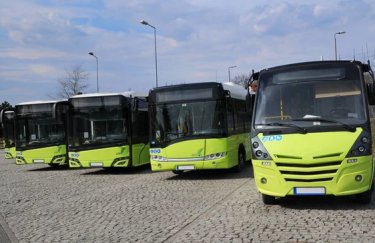
SANTO DOMINGO, Philippines — Truckloads of villagers on Tuesday fled Philippine communities close to the erupting Mayon volcano, traumatized by the sight of red-hot lava flowing down its crater and fearful of sporadic blasts of ash.
Nearly 15,000 people have left the mostly poor farming communities within a 6-kilometer (3.7-mile) radius of Mayon's crater in northeastern Albay province in forced evacuations since volcanic activity spiked last week. Albay’s governor extended the danger zone by a kilometer (more than half a mile) on Monday and asked thousands of residents to be ready to move anytime.
But many opted to flee from the expanded danger zone even before the mandatory evacuation order.
“There's lava and ashfall already,” Fidela Banzuela, 61, said from a navy truck where she, her daughter, grandchildren and neighbors clambered up after leaving their home in San Fernando village close to Mayon. “If the volcano explodes, we won’t see anything because it would be so dark.”
Her daughter, Sarah Banzuela, fled with her two children, including a 2-year-old who has asthma, which she said could be triggered back by volcanic ash that rained down on their village over the weekend.
"There's ashfall already and, at night, there’s red-hot lava from the volcano that seems to be moving closer to us,” Sarah Banzuela, 22, told The Associated Press. She and her mother arrived at a grade school turned into an evacuation center teeming with other displaced villagers.
After days of showing signs of renewed restiveness, including a swarm of rockfalls and a bright-orange crater glow visible at night, Mayon began expelling lava Sunday night, which flowed slowly down two gulleys on its southeastern slope, government volcano experts said.
An ash plume that shot up to 328 feet (100 meters) at dawn on Tuesday drifted southeastward with the wind toward some villages, said Teresito Bacolcol, director of the Philippine Institute of Volcanology and Seismology.
An AP video showed a boulder getting ripped from the side of a dome of lava in Mayon’s crater then plunging and breaking into smaller red-hot pieces as it rolled down and smashed onto other stones on the volcano’s steep slope.
The 2,462-meter (8,077-foot) Mayon is a top tourist draw in the Philippines because of its picturesque conical shape but is the most active of 24 known volcanoes in the archipelago. It last erupted violently in 2018, displacing tens of thousands. In 1814, Mayon’s eruption buried entire villages and left more than 1,000 people dead.
With its peak often shrouded by wisps of passing clouds, Mayon appeared calm on Tuesday, but Bacolcol told AP that lava was continuing to flow slowly down its slopes but could not easily be seen under the bright sun.
The volcano had been raised to alert level three on a five-step warning system last Thursday, meaning a hazardous eruption is possible in weeks or days.
The eruption is the latest natural calamity to test the administration of President Ferdinand Marcos Jr., who took office in June last year and inherited an economy that was shattered by two years of the coronavirus pandemic, which also deepened poverty and unemployment. He has deployed some of his Cabinet officials to Albay to help distribute food aid to and reassure displaced villagers.
Liza David Balbin fled with her children to an emergency shelter in Santo Domingo town after she got scared of Mayon’s lava emissions and her farming community of San Antonio was hit by ashfall. The 48-year-old housewife said the government should find an effective way of relocating poor Filipinos like her away from volcanoes, mountainsides where landslides are common and coastlines that are lashed by tidal waves.
In 1991, Balbin witnessed Mount Pinatubo blowing its top in one of the biggest volcanic eruptions of the 20th century. The massive ashfall and volcanic mudflows wiped out her village and outlying communities in Pampanga province north of Manila. She survived and years later married a man who took her to his home province of Albay, where they lived in an impoverished village not far from Mayon.
“I escaped from Pinatubo then ended up near Mayon volcano,” she told AP with a laugh. “Why is my life like this?”
“If only we’ve got money, we would have left that danger zone and built a house far away,” said Balbin, who makes a living doing laundry. “Now we’re in an evacuation camp again and it’s really been a difficult life. This is too much.”
___
Associated Press journalist Aaron Favila contributed to this report.
Sourse: abcnews.go.com





